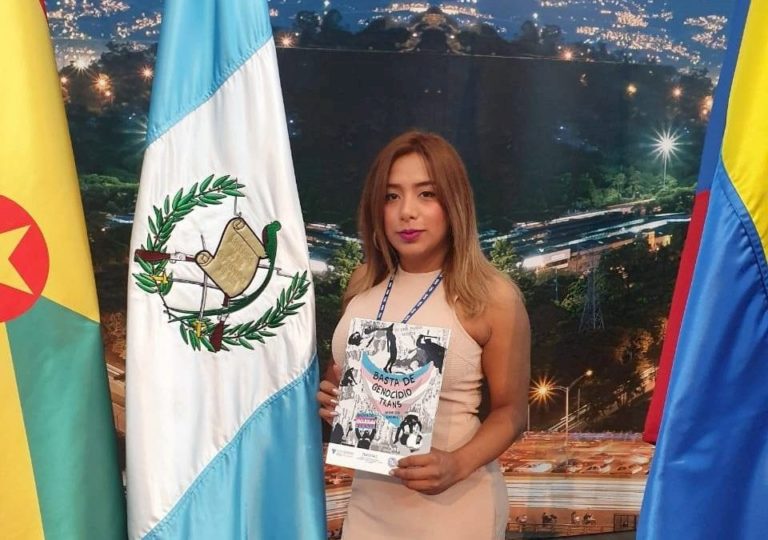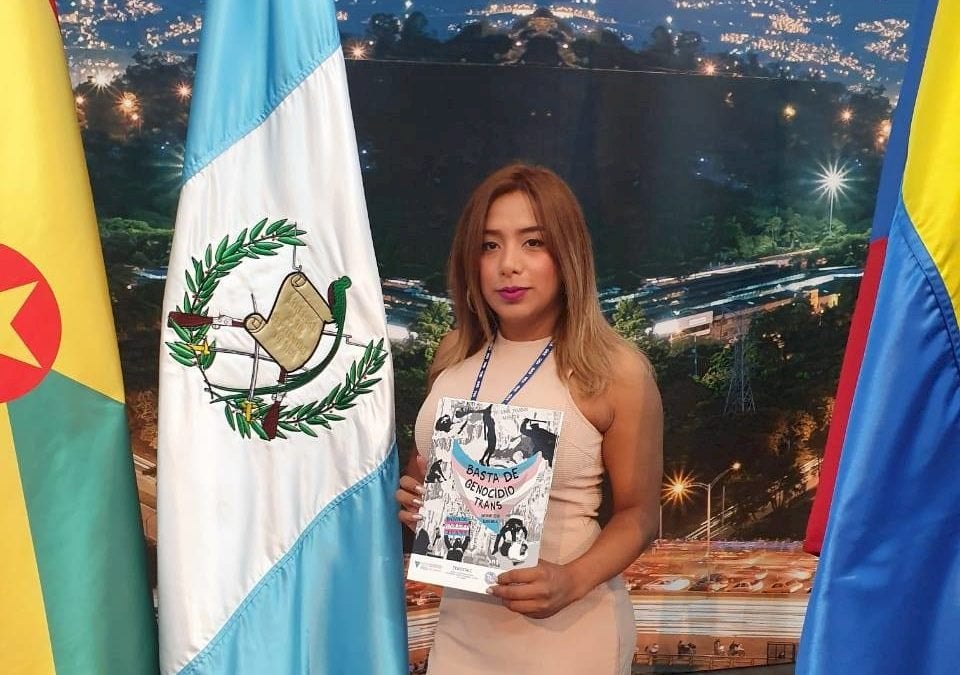

(New York) – Unidentified assailants killed two transgender women and one gay man in Guatemala in separate attacks within the span of one week, including Andrea González, the leader of a trans rights organization, Human Rights Watch said today. The Attorney General’s Office should conduct prompt, thorough, and independent investigations into these cases to bring those responsible to justice.
Guatemalan civil society organizations reported that these 3 recent killings bring the total killings of lesbian, gay, bisexual and transgender (LGBT) people so far in 2021 to at least 13. The Ombudsperson’s Office reported that in 2020, at least 19 people known to be LGBT were murdered in Guatemala.
“To protect LGBT people and prevent 2021 from becoming one of the deadliest years for gender and sexual minorities in Guatemala, authorities need to pursue accountability for these killings,” said Cristian González Cabrera, LGBT rights researcher at Human Rights Watch. “Investigations by the Attorney General’s Office should prioritize establishing whether the victims were targeted on the basis of their sexual orientation or gender identity or their work defending LGBT rights.”
Andrea González, killed on June 11 in Guatemala City, was the legal representative and a leader of OTRANS Queens of the Night (OTRANS Reinas de la Noche), an organization that advocates for the rights of transgender women, including with respect to sexual health, sex work, and legal gender recognition. In recent months, González had sought help from the Attorney General’s Office over threats she had been receiving. González’s killing prompted calls for investigations and expressions of solidarity with LGBT people in Guatemala from the Inter-American Commission on Human Rights and the Swedish and United States embassies in the country.
Cecy Caricia Ixpata, also an OTRANS member, died on June 9 in the Salamá Hospital in Baja Verapaz, where she lived, from injuries sustained in an attack by two unidentified people. An OTRANS representative told Human Rights Watch that Ixpata, like González, had contacted the Attorney General’s Office in the past regarding transphobic threats.
The National Observatory of LGBTIQ+ Human Rights reported that a gay man was gunned down on June 14 in Morales, Izabal.
In March, Human Rights Watch published a report on violence and discrimination against LGBT people in Guatemala. Human Rights Watch interviewed 53 survivors of anti-LGBT abuses and found that perpetrators included public security agents, gangs, and members of the public, including the LGBT people’s own family members. It also found that the government is failing to adequately protect LGBT people against such illegal acts.
Trans people and human rights defenders may be particularly vulnerable. In February, Galilea Monroy de León, director of the transgender rights organization REDMMUTRANS, said police stopped her in the street while searching for someone accused of stealing a firearm. When Monroy asked for a female police officer to search her, an officer said, “You are a man, look at your genitals.” Shoved against a wall, Monroy told the police that she is a human rights defender. A police officer replied, “To hell with human rights.”
Guatemala provides LGBT people with virtually no protections. Guatemala has no comprehensive civil law that explicitly protects against discrimination or addresses hate crimes on the basis of sexual orientation or gender identity. It also has no procedure to allow trans people to change their gender markers on official documents, leaving them vulnerable to discrimination and violence when they are required to present identification.
In addition to these legal deficiencies, lawmakers are including discriminatory provisions in new legislation. The pending Life and Family Protection Bill describes “sexual diversity” as “incompatible with the biological and genetic aspects of human beings” and defines marriage as a union between a man and a woman. It also establishes that “freedom of conscience and expression” protects people from being “obliged to accept non-heterosexual conduct or practices as normal,” a provision that could be used to justify discriminatory denial of services. Meanwhile, a bill to address hate crimes and anti-LGBT discrimination, Initiative 5674, has stalled in Congress.
One institution that has advocated for the rights of LGBT people is the Human Rights Ombudsperson’s Office. However, legislators are attempting to block funding for the office, which announced in May that it was at risk of financial collapse. Legislators have tried to remove the current mandate-holder, Jordán Rodas, from office several times, including because of his support of LGBT rights.
The Inter-American Court of Human Rights has found that the right to life enshrined in the American Convention requires governments to ensure that no one is arbitrarily deprived of their life, but also to adopt all appropriate measures to “prevent, try, and punish the deprivation of life as a consequence of criminal acts, in general, but also to prevent arbitrary executions by its own security agents.” The OAS General Assembly has called on member states to adopt public policies against discrimination based on sexual orientation and gender identity or expression.
The three killings took place in the week after the US vice president, Kamala Harris, visited Guatemala and urged Guatemalans not to migrate to the United States. However, Human Rights Watch found that many LGBT Guatemalans seek asylum after facing persecution on grounds of sexual orientation and gender identity. Some asylum seekers are currently unable to enter the United States as a result of misguided US asylum policies, including the Title 42 order, which authorizes immigration authorities to illegally expel migrants without providing them the opportunity to seek protection in the United States.
“Guatemala should take urgent and comprehensive steps to stop the bloodshed of its embattled LGBT communities,” González said. “Meanwhile, the United States should affirm that it will not turn its back on LGBT Guatemalans fleeing persecution due to their sexual orientation or gender identity.”